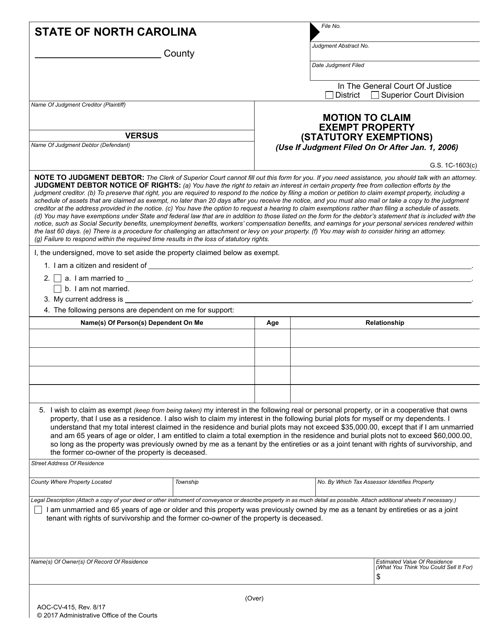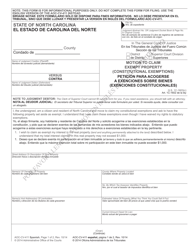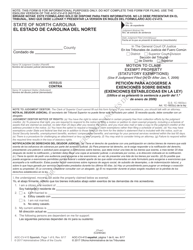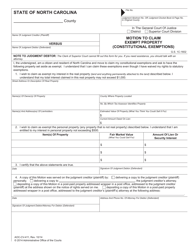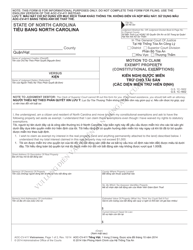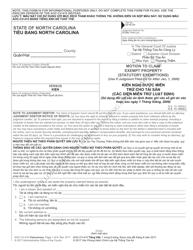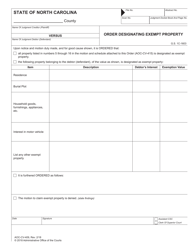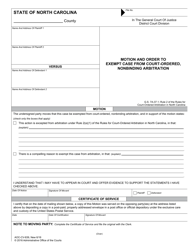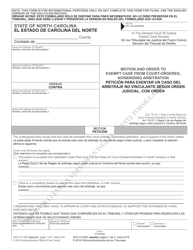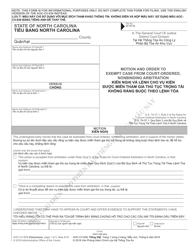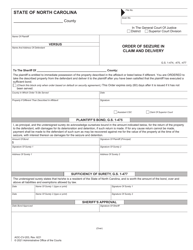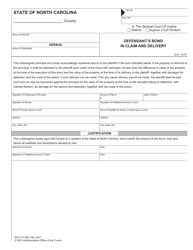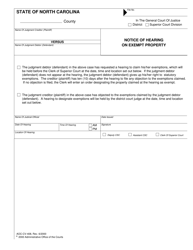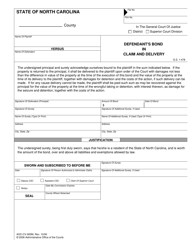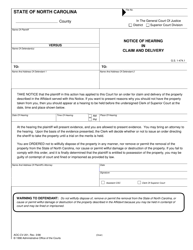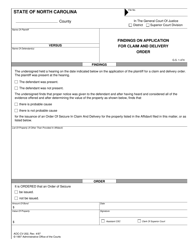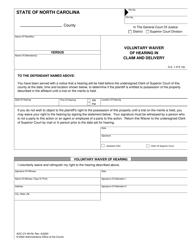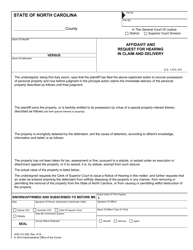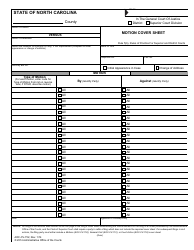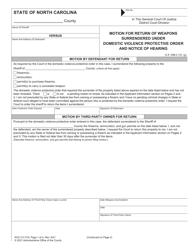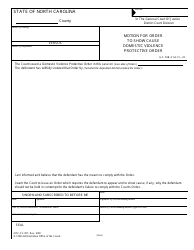Form AOC-CV-415 Motion to Claim Exempt Property (Statutory Exemptions) - North Carolina
What Is Form AOC-CV-415?
This is a legal form that was released by the North Carolina Court System - a government authority operating within North Carolina. As of today, no separate filing guidelines for the form are provided by the issuing department.
FAQ
Q: What is AOC-CV-415?
A: AOC-CV-415 is a form used in North Carolina for filing a Motion to Claim Exempt Property (Statutory Exemptions).
Q: What is a Motion to Claim Exempt Property?
A: A Motion to Claim Exempt Property is a legal document filed to protect certain property from being seized or sold to satisfy a debt or judgment.
Q: What are Statutory Exemptions?
A: Statutory Exemptions refer to specific laws that protect certain types of property from being seized or sold to satisfy a debt or judgment.
Q: Why would I need to file a Motion to Claim Exempt Property?
A: You would file a Motion to Claim Exempt Property to protect your property from being taken to satisfy a debt or judgment.
Q: How do I file AOC-CV-415 in North Carolina?
A: To file AOC-CV-415 in North Carolina, you must complete the form, have it notarized, and file it with the appropriate court.
Q: What happens after I file AOC-CV-415?
A: After you file AOC-CV-415, the court will review your motion and determine whether your property is exempt from being seized or sold.
Q: What if my Motion to Claim Exempt Property is denied?
A: If your Motion to Claim Exempt Property is denied, you may need to seek legal advice and explore other options to protect your property.
Form Details:
- Released on August 1, 2017;
- The latest edition provided by the North Carolina Court System;
- Easy to use and ready to print;
- Quick to customize;
- Compatible with most PDF-viewing applications;
- Fill out the form in our online filing application.
Download a fillable version of Form AOC-CV-415 by clicking the link below or browse more documents and templates provided by the North Carolina Court System.
